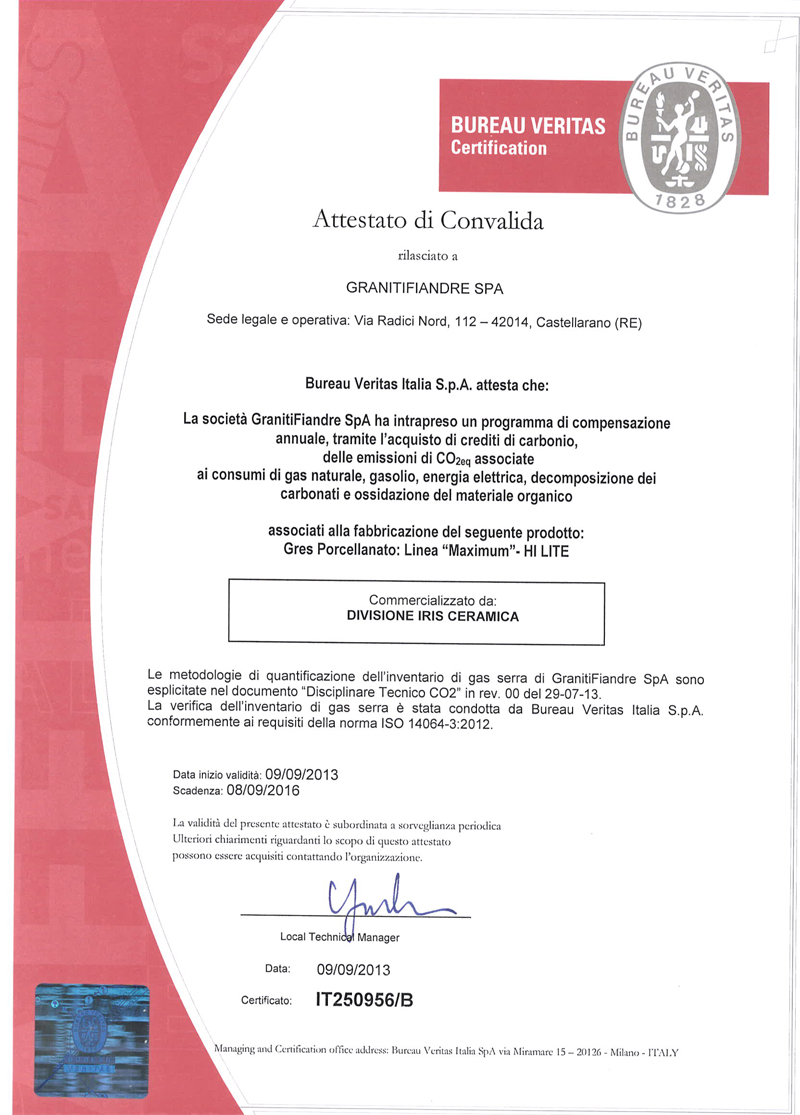
As CO2 emissions continue to grow worldwide, FMG and Iris Ceramica confirm their commitment to ecology and the environment with a prestigious certificate of approval from Bureau Veritas.
The two companies have undertaken an annual emissions compensation programme which will allow them to reduce their CO2 emissions to zero through energy conservation and efficiency, reduction of consumption and waste, investment in renewable energy and compensation of remaining emissions with clean energy or reforestation projects. These actions in combination will reduce the company’s total net emissions from its operations and from the production and life cycle of a specific product to zero.
The GranitiFiandre Group has always accepted its collective responsibility and commitment to the community. The project is intended to compensate the estimated annual CO2 emissions from the production line that produces the big tiles. Emissions will be compensated through acquisition of emissions reduction certificates on the voluntary market (VER or Voluntary Emissions Reductions credits). The specific project the companies have chosen is ECOTRUST – Trees for Global Benefit (Uganda), a programme established in 2003 with the goal of neutralising CO2 emissions through reforestation performed by small rural communities, thus achieving the additional goal of promoting economic development for the local population.
Every year the company recalculates the emissions calculated specifically for the year in progress, to ensure that production is constantly monitored to compensate excess emissions in time. In addition, FMG and Iris Ceramica keep track of their monthly production trends in order to maintain a constant balance between emissions generated and compensated.
